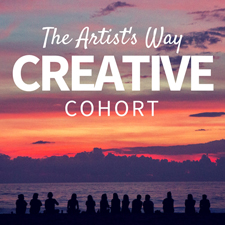To quote Oprah, today I’m going to talk about something that “I know for sure”: Each of us creates our own reality.
Bad stuff going on in your life? You are responsible. Good stuff happening? Pat yourself on the back because you brought that into your life, too. Living with constant ups and downs? You must like the drama, huh? I know that, for some folks, this will be a wildly unpopular idea. Heck, I used to think that life just happened to me, too. But that’s just not true. We create, through our decisions, intentions and attention, our own life experiences.
Decisions
Your day-to-day situation is a result of your decisions. Your decisions dictate your life’s course.
Having financial trouble? Look at your spending habits. Do you spend, spend, spend when you have a little extra, or do you save for a rainy day? A feast or famine lifestyle doesn’t serve you and isn’t necessary. Neither is living paycheck to paycheck for most people. If you can’t afford something, don’t buy it.
In danger of losing your home because you took out a no-interest or adjustable rate mortgage? Why did you purchase a house you couldn’t really afford? That decision wasn’t the bank’s; it was yours.
Unhappy in your relationship or envious of someone else’s so-called “perfect life”? You are choosing to stay in your situation each and every day, and the way you handle that situation is dictating your life experiences. Your spouse may be a jerk but you’re choosing to engage, whether it’s through bickering, arguing or full-on assault. If you chose instead to allow, detach, or—in extreme cases—move on, you wouldn’t be in that situation.
Always getting sick or have a scary medical diagnosis? Most of the time, not always, but most of the time, your choices led to that situation. Eating the wrong things, eating too much, worrying yourself sick, living with too much stress, all of these things can be changed, and when they are, your situation will change.
Yes, occasionally surprises happen: a car accident, an IRS audit or a natural disaster, for example. In these times, you still control your reality by choosing how you’ll respond to the situation. Freaking out? You’re welcoming more stress into your life. Feeling sorry for yourself? You’re inviting more sadness. Don’t believe me? Well, let’s look at how intentions and attention shape your world.
Intentions
Intentions are the beliefs and feelings you send out into the world. They set the tone for your interpersonal interactions. I believe in the Law of Attraction, but you don’t have to in order to understand how your intentions shape the world in which you operate.
Here’s an example: If you hate your coworkers or clients and don’t want to work with them anymore—even if you do your best to hide it—they will be able to tell (if just on a gut instinct/subconscious level). We live our beliefs.
If you intentionally lie, cheat or steal, believing that what someone else doesn’t know won’t hurt them, or that you need something more than another person does, you are creating a world where lying, cheating and stealing are okay. Don’t be surprised when people do the same to you!
Intention also ties into attention: If you believe that people of another race, sexual orientation or religion are evil or dangerous, you will seek out and pay attention to examples that support your belief, while ignoring evidence to the contrary. This tendency is called confirmation bias.
Attention
What you choose to notice, that is, where you put your attention, sets your daily emotional state.
Ever noticed that, when you’re having a bad day, everything seems to be going wrong? That’s your attention at work. You may be having a great day until you trip on your way to work and spill your coffee. Then everything spirals out of control, right? You notice you’re late, that a baby on the subway is crying, that your seat mate is coughing and getting germs everywhere… Because you’re focused on the negative, you ignore the kind person who held the door for you, the smile and wave your neighbor sent you, the extra change you found in your pocket.
The reverse can also be true, but I’ve found that in western societies we tend to emphasize the negative, both in our conversations and our thoughts. Ever listened to older family members talk about who died, who’s sick and what ails them? Then you know what I mean.
The good news about our attention, intentions and decisions setting the course or our lives is that we’re in control. Don’t you feel better just knowing that? We’re not victims; we’re the masters of our fate. So, choose wisely. You’ll be a lot happier for it.
What have your decisions, intentions and attentions brought into your life recently?

















Kate - Many people, among them Albert Einstein, have indicated that our perceptions are our reality.
Brian - Frank, I can’t comment on how this relates to your particular case, anymore than I can comment on how climate change relates to a specific storm. Sure some of what Kate is talking about is perception of reality, rather than an Objectivist notion of reality that exists independently of consciousness, but there is a connection between today’s perception and tomorrow’s experience with reality. How I perceive things influences the multitude of micro-decisions that I make throughout each and every day, many of which are subconscious, which in turn influences those aspects of reality that I experience in the future.
For example, I used to be 40+ pounds overweight and began experiencing the physical ailments that go along with carrying that extra weight (sore back, high cholesterol, knee and ankle pain). I did not fix that problem by wishing the weight away, but neither did I do it by sheer force of will to maintain a rigorous schedule of exercise and dieting. Instead I achieved it by setting an intention to be healthier, and gradually shifting my attention away from what I was giving up, and toward what I was gaining. In turn, I found it easier and eventually more desirable to make healthy food choices and to go for a run a few times a week. I used to crave three or more cans of soda per day, and now I could care less if I ever have another for the rest of my life. I used to think that exercise was a chore, and now I think that something is missing if I haven’t done it recently. I’ve had a normal BMI and cholesterol now for more than two years, so these perceptual shifts have certainly changed my reality.
Frank Mayhar - As a person with colon cancer almost certainly indirectly caused by genetics, I call bullshit. It’s a long way from “stuff we pay attention to” to “creating reality.” What you’re describing is perception, not reality. We can change our perceptions, but we can’t change reality.
(This is also really setting off my meaninglessly-redefined-buzzword alarm.)